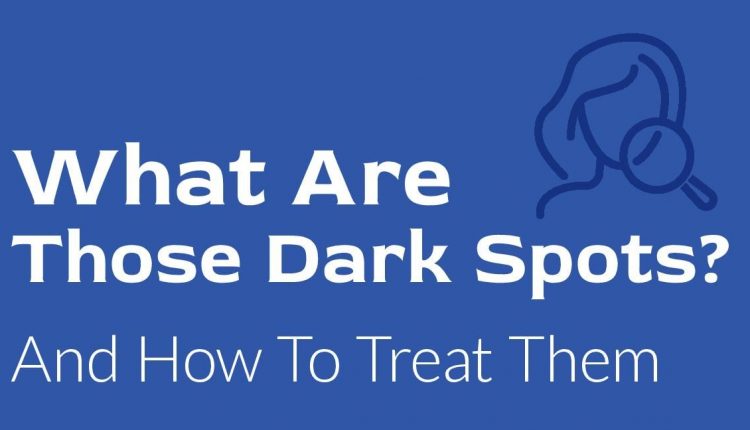Worried about dark spots or blemishes on your face? Also known as hyperpigmentation, these dark spots are quite common in people of all skin types, although people of color are more likely to be affected. Here’s a closer look at what causes them, how to treat them, and what else you should know if you notice these spots on your face or other parts of your body.
Hyperpigmentation can appear in small areas, but larger dark spots can appear anywhere on the body, especially the face and hands. This is fairly common and is usually not a symptom of a more serious condition and includes sunspots, melasma, and post-inflammatory hyperpigmentation.
Sunspots, as the name suggests, are caused by sun exposure, whereas melasma is caused by hormonal fluctuations, which are often associated with pregnancy. Post-inflammatory hyperpigmentation occurs when the skin becomes infected or injured. Acne and other skin conditions can leave dark spots on the skin even after they have healed.
A dermatologist can tell you the cause of your hyperpigmentation and whether it’s just a cosmetic issue or something that needs a biopsy. This condition can may be treated with topical medications such as hydroquinone or creams containing topical retinoids. However, this treatment can take several months to lighten dark spots. Your doctor may also recommend chemical peels, laser treatments, or skin infusions to reduce the appearance of hyperpigmentation.
To prevent hyperpigmentation, stay out of the sun as much as possible, especially during peak hours of sunlight, and use a sunscreen with an SPF of at least 30 every day. Some freckles can fade by removing sun exposure; others may not completely go away even with treatment. It’s important to note that dark spots are usually not a sign of a serious condition, but if you have any questions or concerns, talk to your doctor. Check out the resource below, What Are Those Dark Spots? And How To Treat Them for more information about this common skin problem.
Author bio: Christian Slavin is the founder and CEO of Zapatat. Slavin has a background in health care and received his MBA with honors from Harvard Business School. After studying tattoo removal for several years, he founded Zapatat in 2009 to make tattoo removal more accessible, safer and more pleasant.




